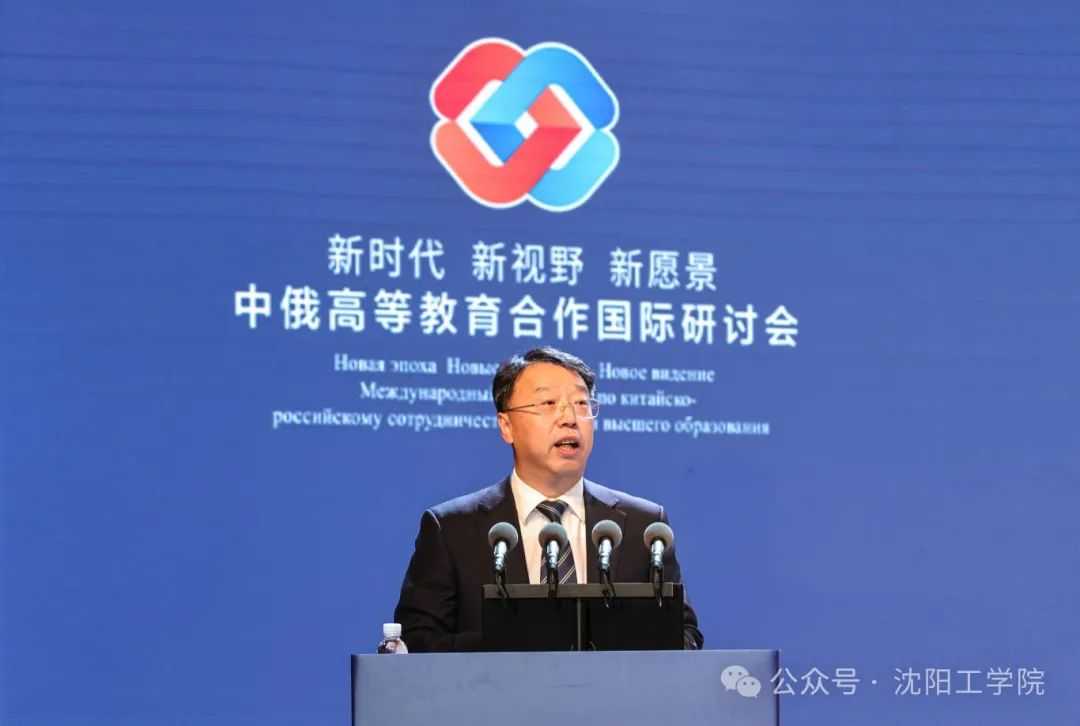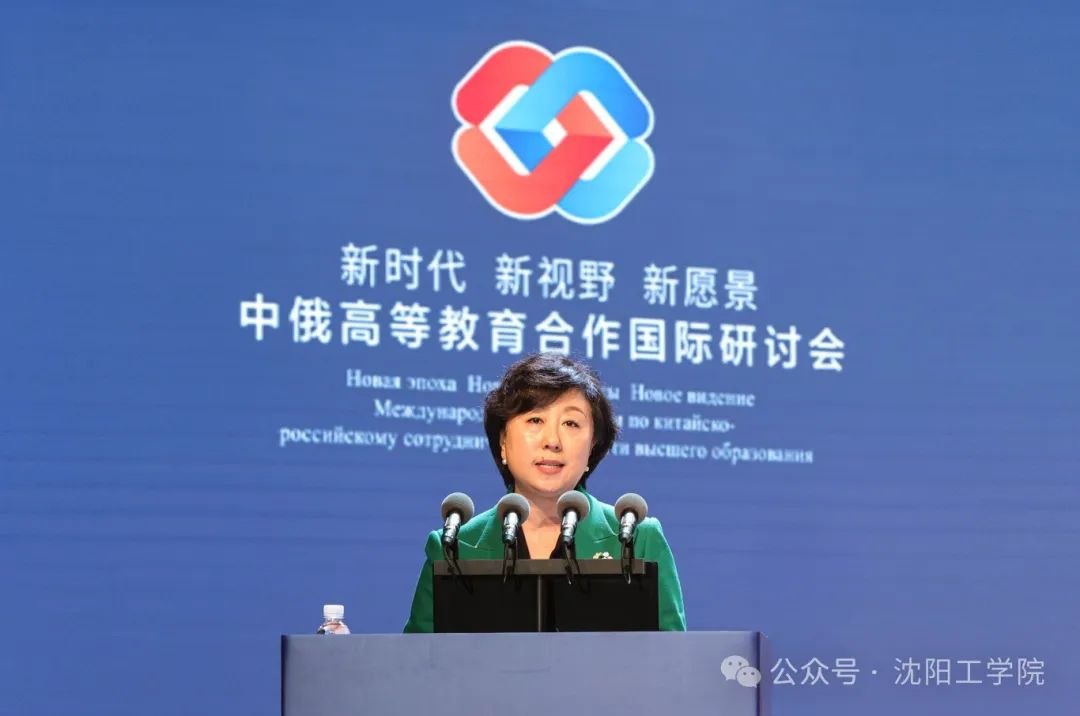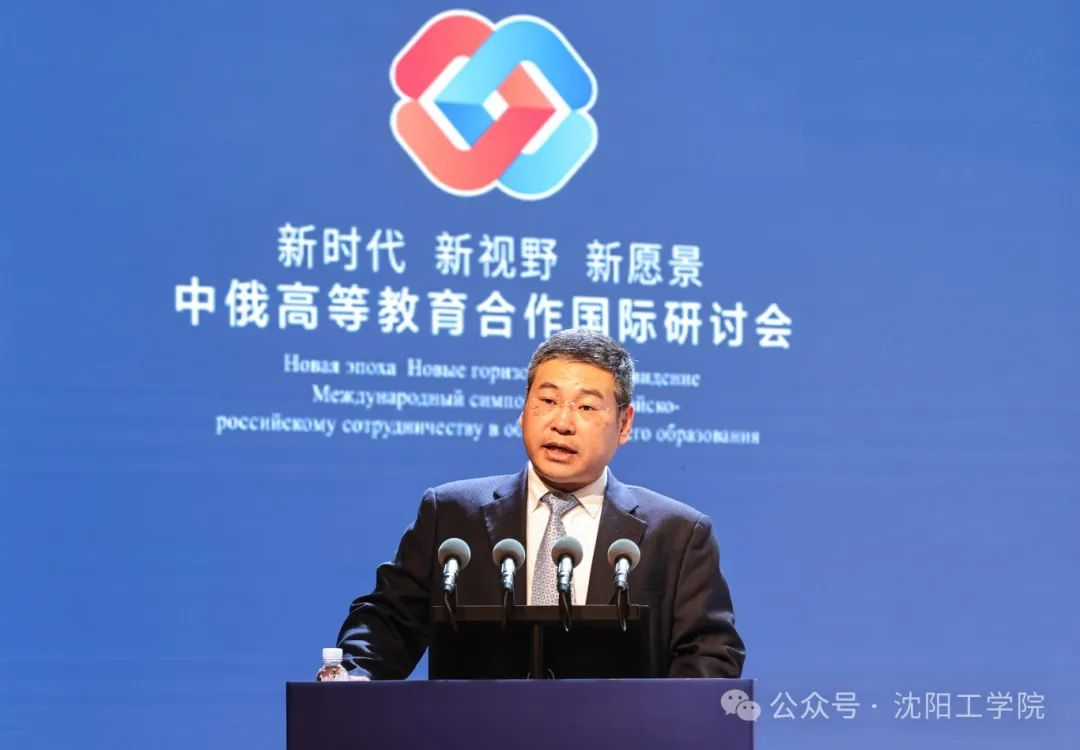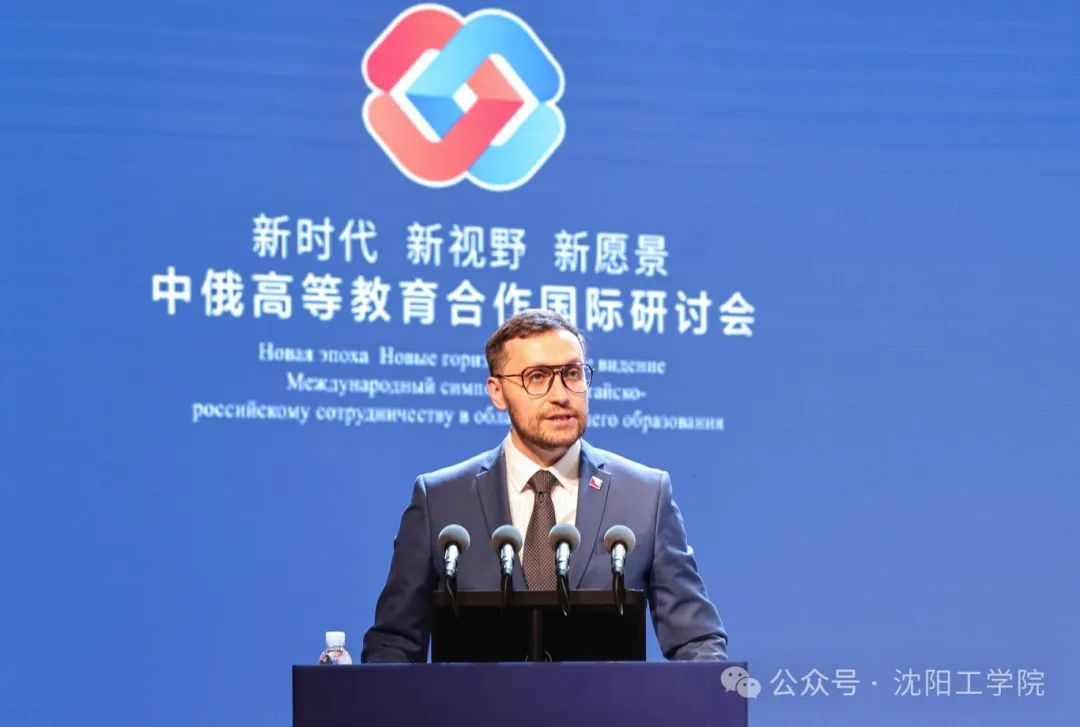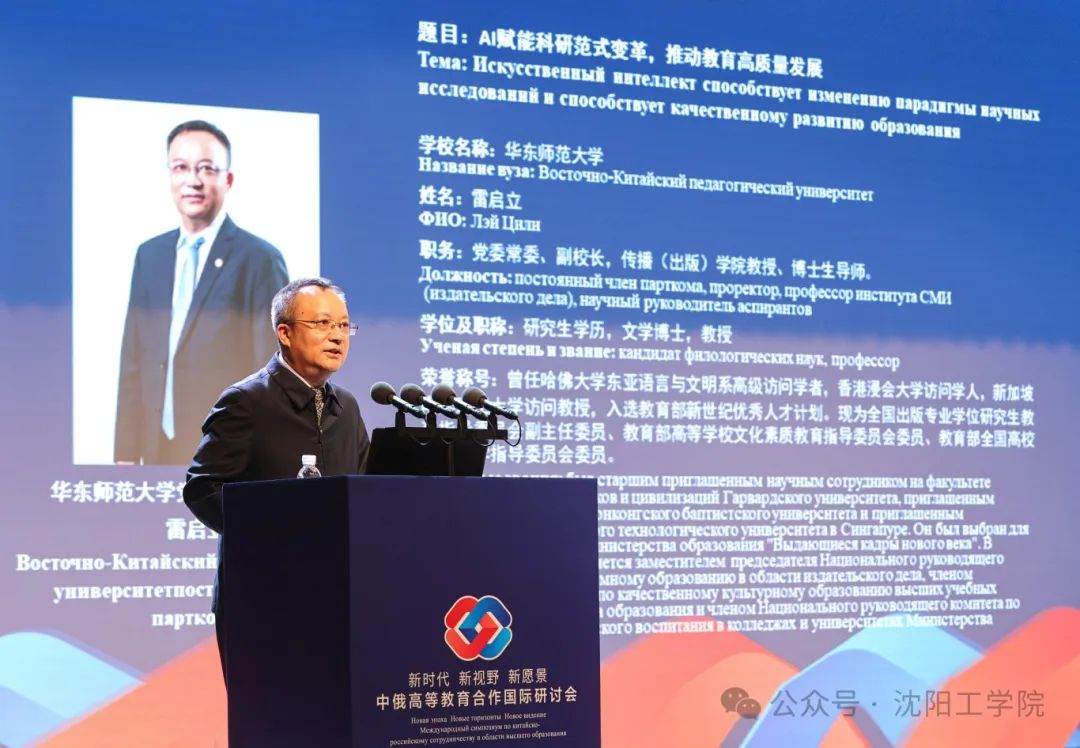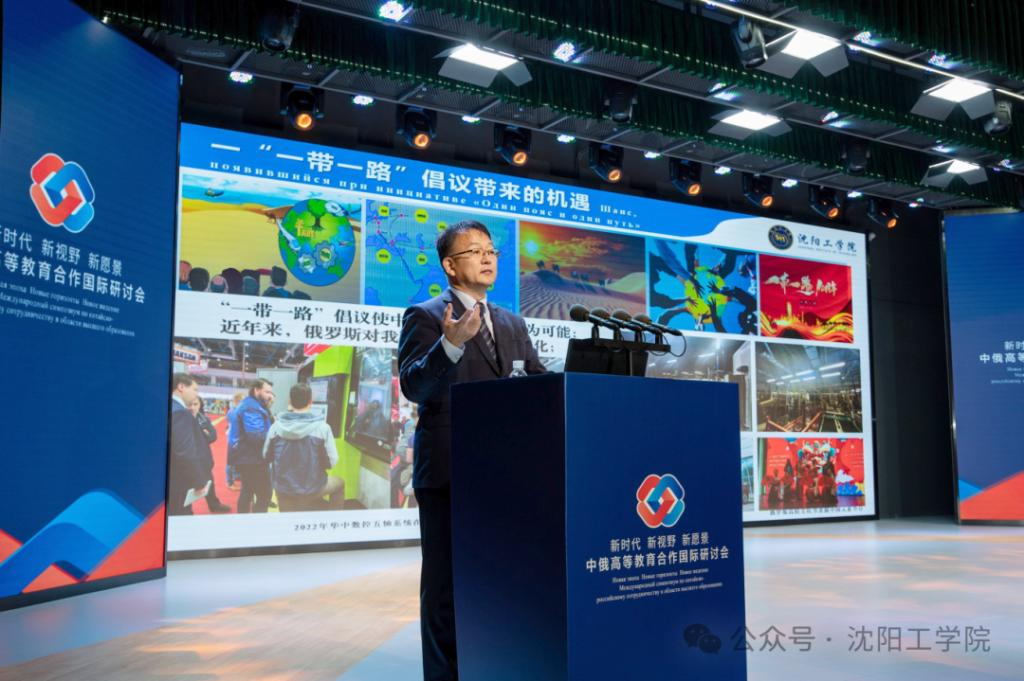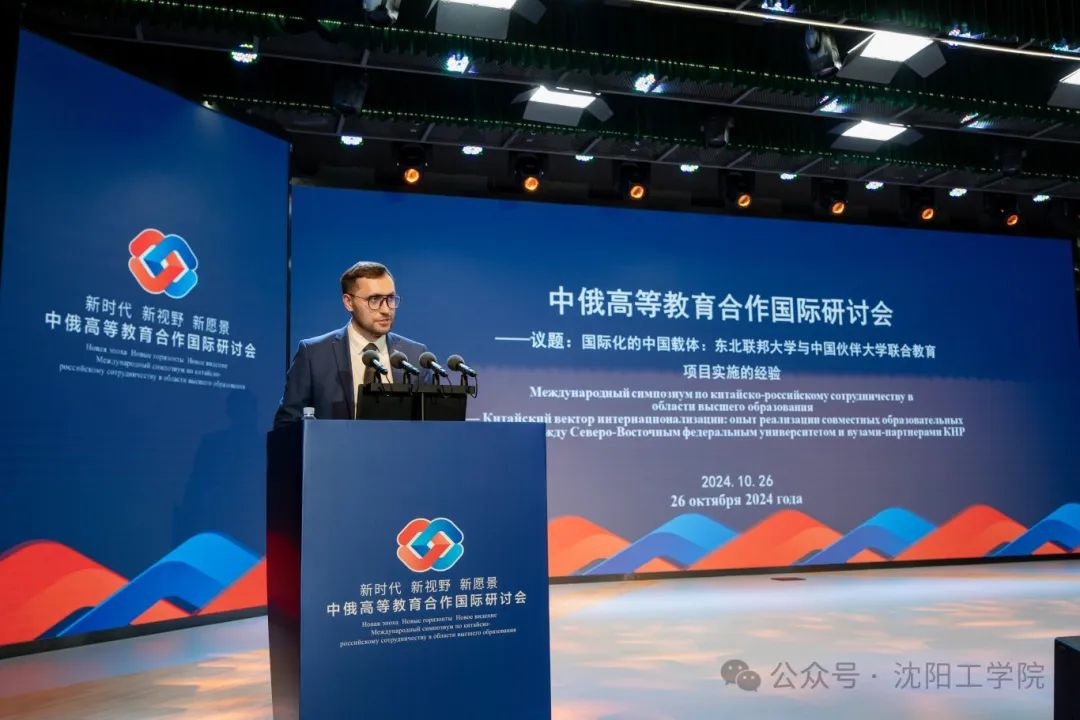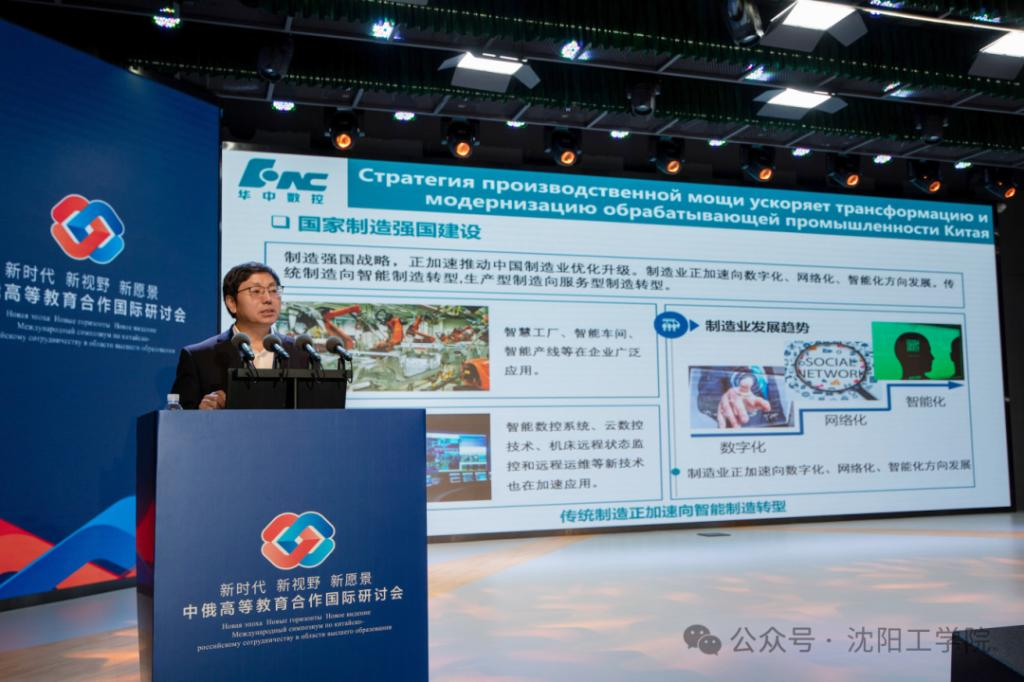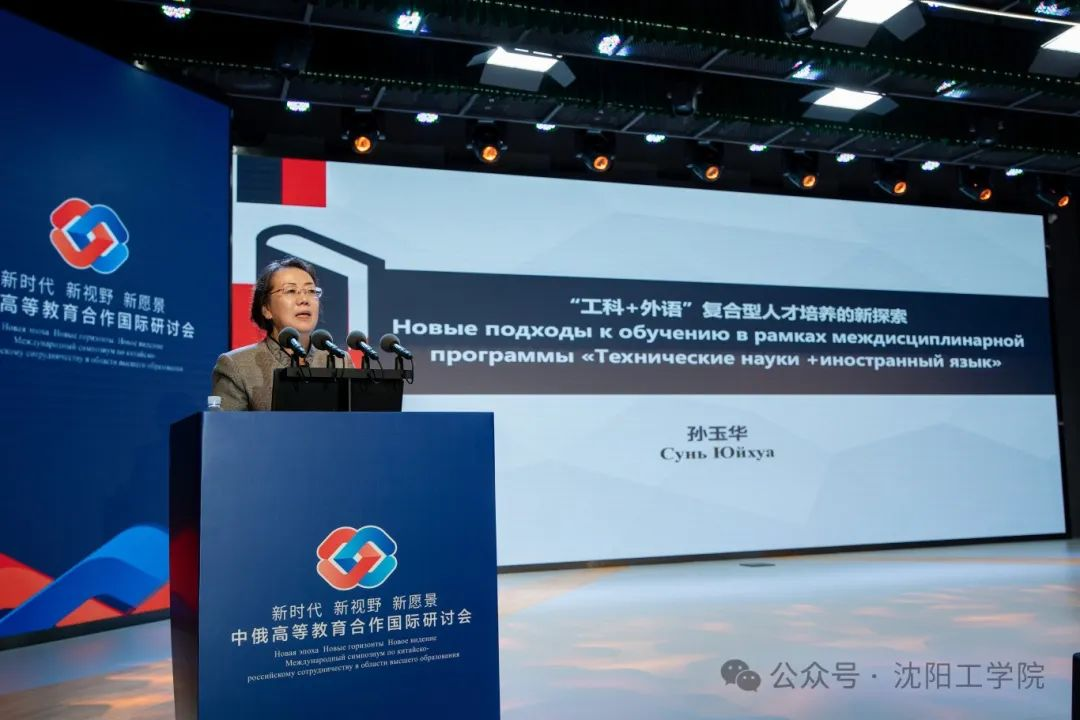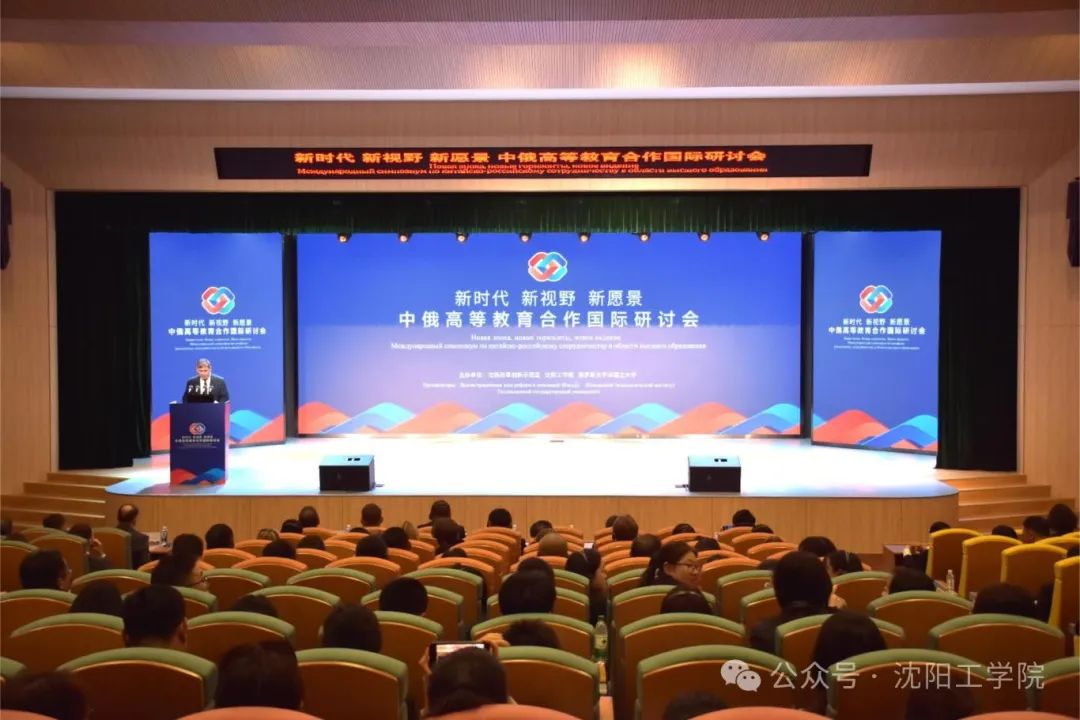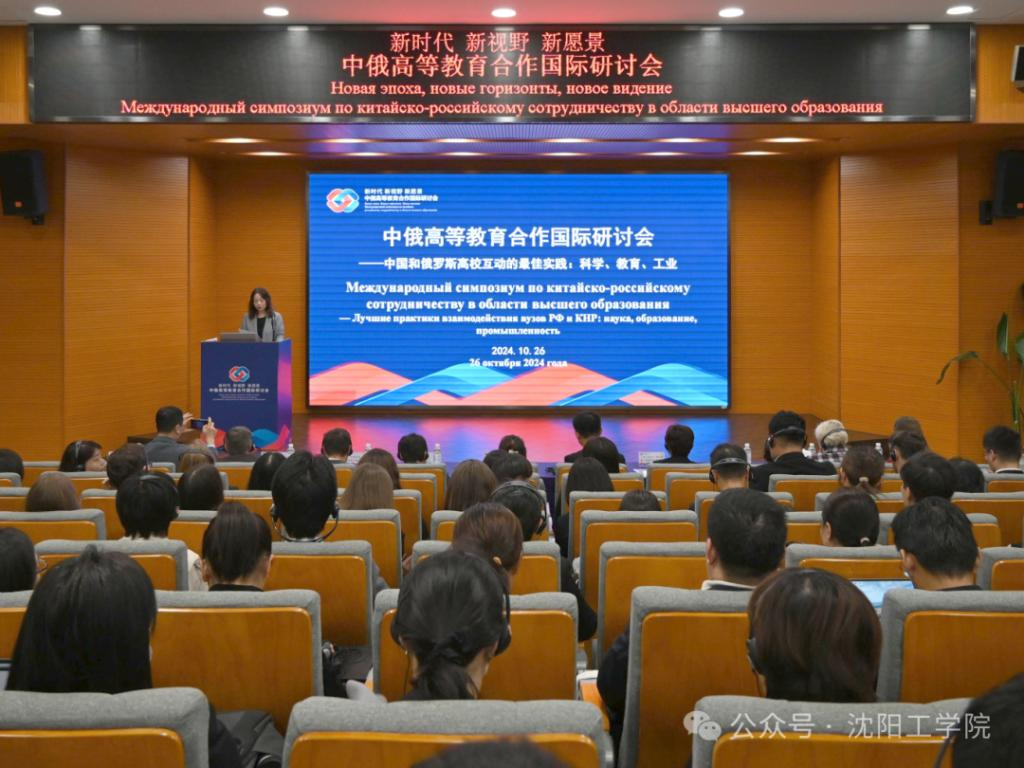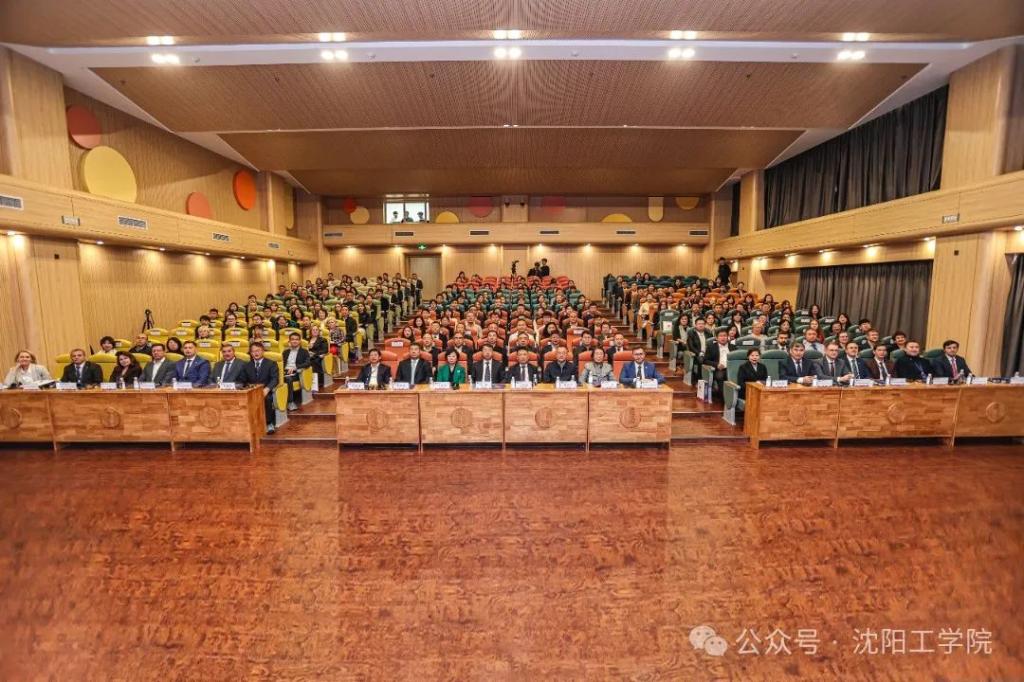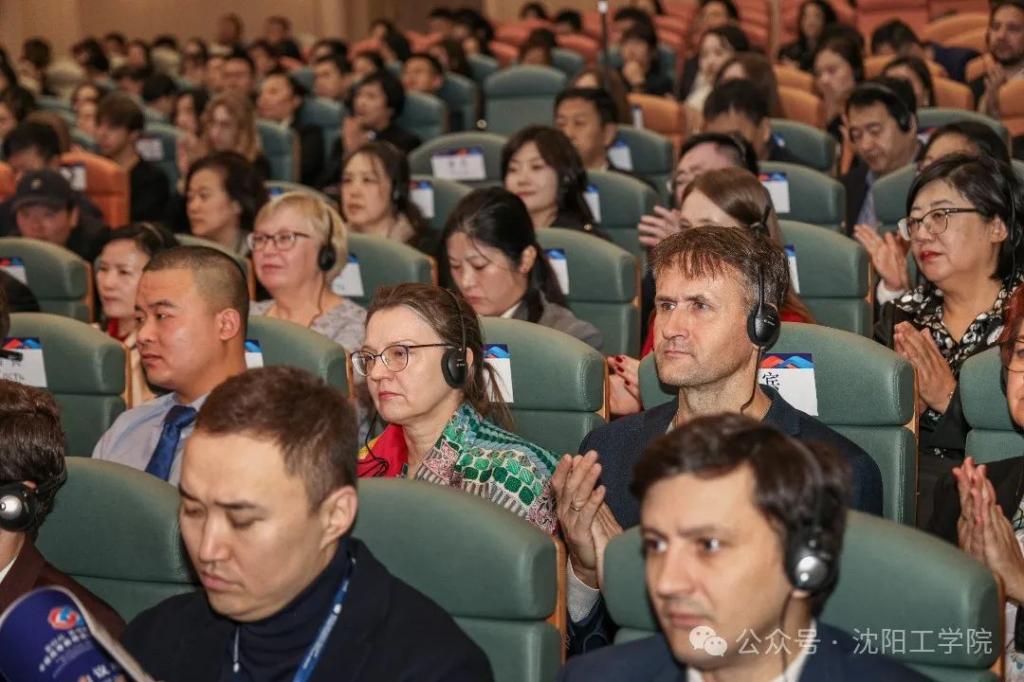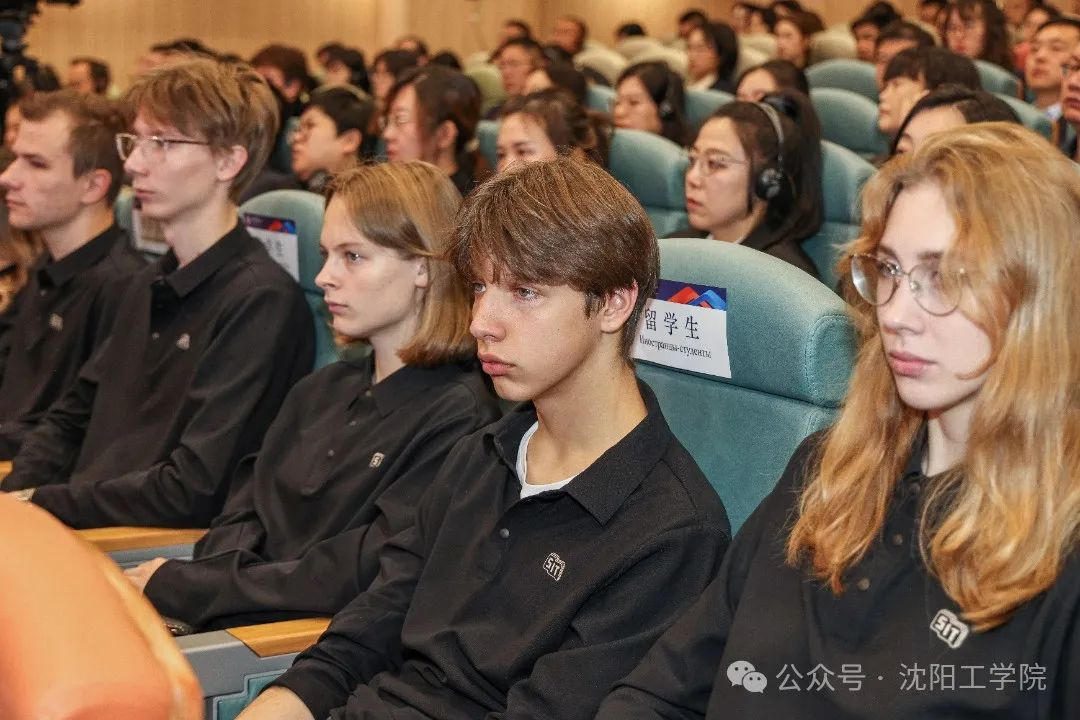On October 26th, the New Era, New Vision, New Vision International Symposium on Sino-Russian Higher Education Cooperation, jointly organized by the Shenfu Reform and Innovation Demonstration Zone, Shenyang Institute of Technology, and Pacific State University in Russia, was held at SIT. 34 university presidents from China and Russia, as well as experts and scholars from leading enterprises in the intelligent manufacturing industry, gathered together to explore new concepts, new thinking, and new models in the field of higher education research, and to jointly build a new ecology, new formats, and new forms of international higher education cooperation that is open, inclusive, and mutually beneficial. They conducted in-depth discussions and exchanges on topics such as international cooperation, scientific research cooperation, “professional+foreign language” composite talent cultivation, and digital empowerment of higher education between China and Russia. Kong Feng, member of the Party Group and Deputy Director of the Education Department of Liaoning Province, Wang Hejin, member and Deputy Director of the Party Working Committee of the ShenFu Reform and Innovation Demonstration Zone, Marfen Yuri Sergeyevich, President of the Pacific State University in Russia, Li Shengyang, Vice President of Huawei Public Utility Corps and Director of Huawei Global Education Industry Solutions, Jiang Rongliang, Vice President of Wuhan Huazhong Numerical Control Co., Ltd., Lei Qili, Vice President of East China Normal University, Sun Yuhua, former President of Dalian Foreign Studies University, as well as Wang Zhaobao, Chairman of SIT, Hu Xiaomei, Secretary of the Party Committee, and President Li Kangju, attended the seminar.
Zhang Daliang, Vice President of the Chinese Association of Higher Education and former Director of the Higher Education Department of the Ministry of Education, delivered a speech via video link. He pointed out that in recent years, China’s high-level education has actively sought higher quality development through opening up to the outside world, achieving significant results. This seminar is a practical measure to comprehensively implement the important consensus reached by the two heads of state in the field of higher education between China and Russia, and will undoubtedly promote positive results in the cooperation of higher education between the two countries. Shenyang Institute of Technology is one of the typical cases of the classified development in Liaoning Province, it has transformed educational resources into economic and social development. With distinctive school current characteristics and complete educational conditions, it has formed a talent training model of “specialty+language” after years of exploration, integrated into “the Belt and Road” international education model and achieved remarkable results in the two-way enabling industry cooperation paradigm with enterprises. Kong hope that the attending universities will continue to follow the important consensus reached by the two heads of state as the fundamental principle, adhere to “mutual benefit and win-win” principle, closely cooperate, improve cooperation efficiency, achieve stable cooperation, continue to deepen education cooperation, and work together to make new contributions to the sincere cooperation in higher education between China and Russia.
Kong Feng said in his speech that Liaoning is an important node in the construction of the “the Belt and Road”, with advantages in geographical location and rich scientific and educational resources. Liaoning attaches great importance to educational exchanges and cooperation with Russia, actively carries out Sino-Russian cooperation in running schools, studying in China with Russia, international cooperation in production, learning, research and application with Russia, and educational exchanges with Russia, and actively integrates into the joint construction of the “the Belt and Road”. This seminar provides more opportunities for communication and cooperation between Chinese and Russian universities and enterprises. Kong hope that experts, scholars, and business representatives from different regional and industry boundaries can share their insights, and jointly draw a blueprint for higher education cooperation between China and Russia, contributing to the construction of an open and cooperative hub in Northeast Asia and promoting high-quality regional economic and social development.
Wang Hejin said in his speech that as an important force of higher education in the Shenfu, Shenyang Institute of Technology actively responded to the “the Belt and Road” initiative, transforming the advantages of disciplines, talents, and science and technology into a force that helps the high-quality development of Shenfu. It is hoped that through this seminar, China and Russia will adhere to jointly build the high-quality development of the “the Belt and Road”, promote innovation and opening up cooperation, support the overall national and regional development strategies, and show greater responsibility in promoting the construction of the “the Belt and Road” and the overall revitalization of the Northeast.
Li Shengyang stated in his speech that in Liaoning, Huawei has already carried out school enterprise cooperation with more than 20 universities in Liaoning province and achieved fruitful results. Among them, Huawei and Shenyang Institute of Technology have started a deep cooperation in ICT talent cultivation since 2018, jointly establishing the ICT College to carry out high-quality professional group construction in artificial intelligence, cloud computing, big data, big models, 5G, HarmonyOS, data communication, etc., and jointly building a faculty team and training base. In 2024, both sides will further strengthen cooperation, jointly establish a modern industrial college, and build 10 training rooms to enable students to master the most cutting-edge ICT technology knowledge. The cooperation between Huawei and Shenyang Institute of Technology has explored an innovative path for ICT talent cultivation, providing innovative models and successful paradigms for deepening industry education integration and school enterprise cooperation in higher education in Liaoning Province and even the whole country.
Marfen Yuri Sergeyevich stated that strengthening and deepening the comprehensive partnership and strategic cooperation between Russia and China is in line with the fundamental interests of both countries and the trend of modern development. At this seminar, experts and scholars from Russian and Chinese universities as well as industry enterprises discussed the hot issues of implementing joint education programs between Russian and Chinese universities, and shared the best practices of interaction between Russian and Chinese universities in the fields of science, education, and industry cooperation. This will undoubtedly promote more fruitful cooperation in higher education between Russia and China.
Hu Xiaomei stated that SIT adheres to high quality education and has established multiple cooperation platforms such as Pushkin Institute. and the number has come to 15 universities and SIT is committed to deep integration of industry and education. With the support of leading enterprises such as Huazhong CNC, Huawei, SIT has explored a new path in cultivating “Russian+professional” international applied talents to serve new quality productivity. In the future, we hope that universities in China and Russia will jointly contribute to the development, revitalization, and modernization of both countries’ higher education.
At the seminar, Lei Qili gave a report titled “AI Empowering Research Paradigm Change to Promote High Quality Development of Education”.
Li Kangju shared the experience and practices of the school in actively promoting the reform of “specialty+language” education and teaching, jointly opening the “the Belt and Road” order class with enterprises, accurately cultivating the composite high-quality applied talents that are in short supply in the industry, promoting high-quality employment of students, and carrying out services and technical support for countries along the “the Belt and Road” with the title of “Deepening the Integration of Schools and Enterprises, Strengthening International Cooperation in the Reform of “Specialty+Language” Education - Taking Shenyang Institute of Technology as an Example".
Report by Marfen Yuri Sergeyevich titled “New Implementation Methods for Sino-Russian Higher Education Cooperation”. Jiang Rongliang delivered a report titled “Exploration and Practice of the Construction of Intelligent Manufacturing Engineering Practice Center”. Nikolayev Anatoly Nikolaevich, President of Northeastern Federal University, wrote a paper titled “The Chinese Carrier of Internationalization: Experience of the Implementation of Joint Education Projects between Northeastern Federal University and Chinese Partner Universities”. Sun Yuhua delivered a report titled “New Exploration of Cultivating Engineering+Foreign Language Composite Talents”.
The seminar also established two sub forums. Experts and scholars conducted in-depth discussions on two topics: “Implementation of Joint Education Projects between Chinese and Russian Universities” and “Best Practices for Interaction between Chinese and Russian Universities: Science, Education, and Industry”.
As important strategic partners, China and Russia have increasingly frequent exchanges and cooperation in the field of higher education. This seminar has provided a high-end, open, and pragmatic exchange platform for universities in both countries, gathering wisdom and strength in the field of higher education between China and Russia, and jointly exploring new opportunities, challenges, and paths for higher education cooperation in the new era. The insightful insights of experts and scholars have boosted cooperation in higher education between China and Russia, injecting new vitality into the future talent cultivation between the two countries.
Officials from the Shenfu Reform and Innovation Demonstration Zone, leaders from 23 sister universities in the province and 10 Russian universities including Pacific State University, as well as representatives from companies such as Huawei and Wuhan Huazhong Numerical Control Co., Ltd., faculties and students from SIT attended the seminar.
(Written by Zhang Qian/Photo by Guan Tianqi, Ding Shengzhe, Zhao Hongyu, Deng Zhiren, Zhang YuQi, Wang Yingshuo/ Proofreadingby Li Qian/Reviewed by Quyi)
Translated by Basic Courses Department
